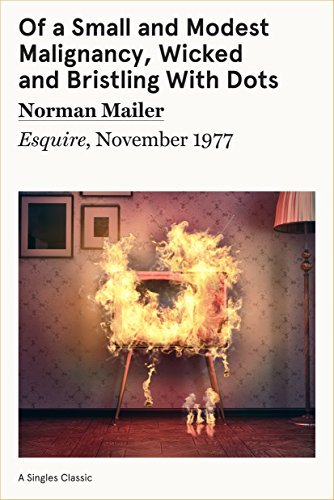What do you think?
Rate this book


73 pages, Kindle Edition
Published July 18, 2016
...In those early mornings when television was his only friend, he knew already that he detested his habit. There was not enough to learn from watching TV. Some indispensable pieces of experience were missing. Except it was worse than that. Something not in existence was also present...After The Star-Spangled Banner, the screen would go blank. Or, not exactly blank:
Often, when the stations went off the air and no programs were left to watch, he would still leave the set on. The audio would hum in a tuneless pullulation, and the dots would hiss in an agitation of unlabeled forces...anti-noise dancing in eternity with noise...the message of TV was the scan of grey on grey and the hum of the sound when there is neither music nor voice. Much later [he compared] President Nixon's victorious but still featureless personality to a TV screen that is lit when nothing is on the air. Nixon was there...to deaden the murderous mood of the republic. [The TV's] message was the same as Nixon's: I am here to deaden you...The first televised presidential debate was in 1960, between Nixon and Kennedy, and supposedly put Nixon at a disadvantage. But the true beneficiary of this new technology was neither Democrat nor Republican:
...if security against dread was the subtext behind every political movement in America...[then] the political movement whose real fortunes were advanced was television itself, with its silent radiating argument that it was the best political program yet found for the tranquilization of dread.When he goes on The David Susskind Show with Truman Capote and Dorothy Parker, Mailer, always competitive, is obsessed with doing well; Capote, relatively sane, is happy to let Mailer "win", and they both agree that Capote came off just as terribly as he expected to, except for the strange fact that the only thing any of Mailer's friends seem to remember afterwards is Capote's succinct judgment of Kerouac: "It is not writing. It is only typing."